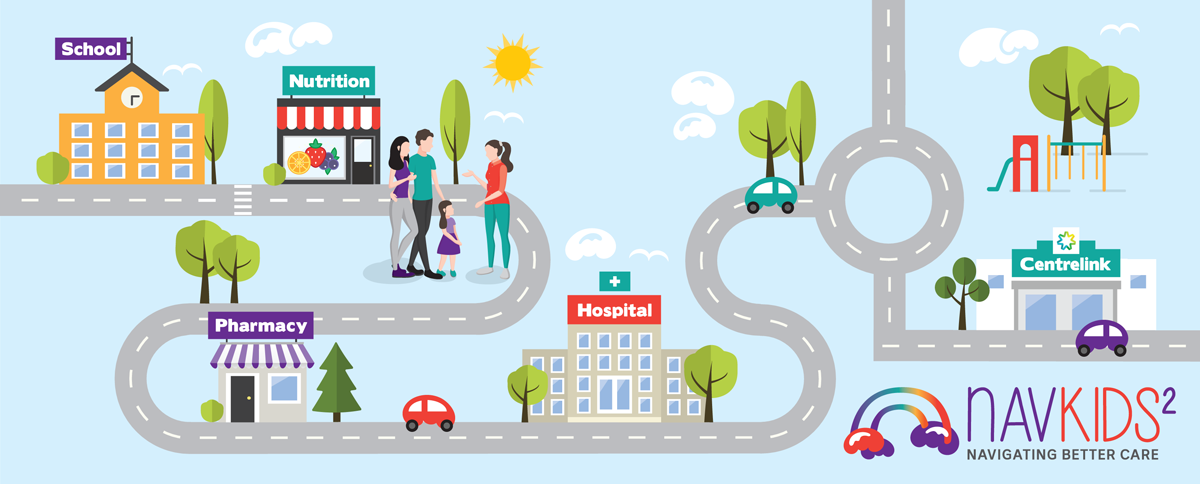About NAVKIDS²
Chronic kidney disease (CKD) has a major impact on the lives of children and adolescents, and their families. Aside from the burden of care and financial impact, caring for a child with CKD further involves juggling around several care settings. While there is plenty of information and support available, it can be very overwhelming for carers to navigate through this complex healthcare system. NAVKIDS2 is a research program aimed at determining the effectiveness of a patient navigator program in supporting patients and their families through their CKD journey.

What is a patient navigator?
A CKD-Care patient navigator is a trained professional who helps children with CKD and their families by supporting their care needs within the health care and community setting. Navigators support patients one-on-one to identify their needs and help find services and resources to address these needs.
Goals of the NAVKIDS² program
The purpose of the NAVKIDS2 is to see if a patient navigator program is beneficial for children with CKD and their families who are facing financial hardships or are from remote geographical locations.
Who can be involved?
Children and adolescents aged between 0-16 years with any stage of kidney disease, on dialysis, or those with kidney transplant that are from families facing financial hardships or remote geographical locations.
What does the study involve?
Children and their families enrolled in the NAVKIDS2 program will be assigned a patient navigator for 6 months to help them through their CKD journey. The program is completely free and voluntary – in return children and their families will be asked to complete some questionnaires and health assessments over a period of up to 12 months. As we are trying to identify the benefits of a patient navigator, some patients will have to wait 6 months for their patient navigator – this will allow us compare patients with a navigator to those without one. We can later use this information to encourage hospitals and kidney health centres to provide patient navigator programs in the future. Contact us if you would like more information about what is involved.
